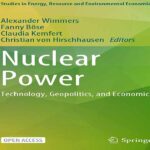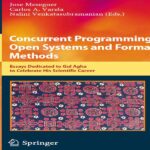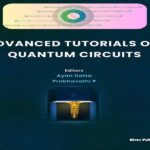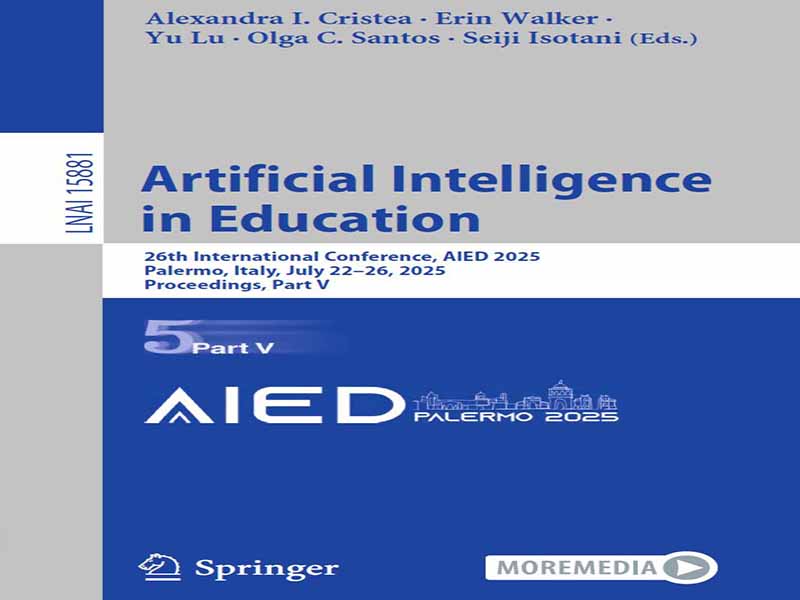- عنوان کتاب: Artificial Intelligence in Education, 26th International Conference, AIED 2025
- نویسنده: Alexandra I. Cristea
- حوزه: کاربرد هوش مصنوعی در آموزش
- سال انتشار: 2025
- تعداد صفحه: 528
- زبان اصلی: انگلیسی
- نوع فایل: pdf
- حجم فایل: 25.4 مگابایت
به بیست و ششمین کنفرانس بینالمللی هوش مصنوعی در آموزش و پرورش که از ۲۲ تا ۲۶ جولای ۲۰۲۵ در شهر پر جنب و جوش پالرمو، ایتالیا برگزار میشود، خوش آمدید. AIED 2025 در ICORE رتبه A را کسب کرده است، در بین ۱۴.۹۲٪ از کل ۷۸۴ محل برگزاری رتبهبندی شده، و امسال با بیش از ۸۰۰ ارسال اولیه، به وضوح در حال رشد و جذب ارسالهای بیشتر است. بنابراین، همانطور که بیش از یک ربع قرن پیشرفت علم و مهندسی اکوسیستمهای هوشمند انسان-فناوری که از یادگیری پشتیبانی میکنند را جشن میگیریم، این دوره با معرفی یک سیستم اختصاصی مبتنی بر مسیر، تحول قابل توجهی در ساختار کنفرانس ما ایجاد کرد. این قالب جدید برای ثبت رشد این حوزه و همچنین ماهیت پویا و چندوجهی تحقیقات در هوش مصنوعی آموزشی طراحی شده است که منعکس کننده سرعت سریع و تأثیر رو به گسترش این حوزه است. موضوع AIED 2025 – «هوش مصنوعی به عنوان کاتالیزوری برای آموزش فراگیر، شخصیسازی شده و اخلاقی: توانمندسازی معلمان و دانشآموزان برای آیندهای عادلانه» – چشمانداز ما را برای آیندهای متحول در آموزش و پرورش مجسم میکند. هوش مصنوعی با سرعت بیسابقهای در حال پیشرفت است و هوش مصنوعی مولد و فناوریهای مرتبط، پیشگام این تغییر دگرگونکننده هستند. همانطور که این نوآوریها فرآیندهای تدریس و یادگیری را تغییر شکل میدهند، فرصتهای جدیدی را برای ایجاد تجربیات یادگیری شخصیسازی شده و پویا ایجاد میکنند. حتی با اینکه تکنیکهای سنتی هوش مصنوعی همچنان در حال تکامل و غنیسازی درک ما هستند، تغییر واقعی در استفاده از این پیشرفتها برای ارائه ابزارهای قدرتمند به مربیان برای بینش عمیقتر، آموزش متناسب و افزایش مشارکت دانشآموزان نهفته است. در قلب این تحول، تعهد به عدالت و عمل اخلاقی قرار دارد. با بهرهبرداری از ظرفیت هوش مصنوعی برای شخصیسازی تجربیات یادگیری، میتوانیم به نیازهای متنوع دانشآموزان رسیدگی کنیم و نابرابریهای آموزشی را به ویژه در میان جوامع محروم و حاشیهنشین کاهش دهیم. به همان اندازه، نیاز به ادغام مسئولانه هوش مصنوعی و اطمینان از اینکه عدالت، شفافیت و حریم خصوصی در شیوههای آموزشی ما در اولویت قرار دارند، اهمیت دارد. این تعهد دوگانه – به نوآوری و شمول اخلاقی – سنگ بنای موضوع کنفرانس ما بود. برنامه کنفرانس شامل هفت مسیر موضوعی بود: – مسیر ۱ – معماریها و ابزارهای هوش مصنوعی هوشمند: این مسیر پیشرفتهای نوآورانه مهندسی، از سیستمهای چندعاملی و رابطهای ملموس گرفته تا برنامههای کاربردی مقیاسپذیر و خاص حوزه در زمینههای مختلف آموزشی را برجسته کرد. – مسیر ۲ – یادگیری ماشین و هوش مصنوعی مولد: این مسیر با تأکید بر تکنیکهای مبتنی بر داده و مدلهای مولد، الگوریتمهای جدید و رویکردهای محاسباتی را بررسی کرد که قابلیتهای پیشبینی و انطباقی را در محیطهای آموزشی افزایش میدهند. – مسیر ۳ – یادگیری، تدریس و آموزش: این مسیر با تمرکز بر کارهای تجربی و نظری، تأثیر هوش مصنوعی را بر شیوههای تدریس، مشارکت یادگیرنده و تکامل تجربیات یادگیری رسمی و غیررسمی بررسی کرد. – مسیر ۴ – طراحی انسانمحور و تحقیقات مبتنی بر طراحی: این مسیر به اصول طراحی و استراتژیهای تعاملی پرداخت که مربیان و یادگیرندگان را در مرکز قرار میدهد و مشارکتهای مشترک انسان و هوش مصنوعی را برای ارتقای عاملیت و تصمیمگیری مؤثر تقویت میکند. – مسیر ۵ – آموزش هوش مصنوعی: تحقیقات این مسیر که به ارتقای سواد هوش مصنوعی اختصاص دارد، روشها و فناوریهایی را بررسی میکند که هوش مصنوعی را رمزگشایی میکنند و افراد را قادر میسازند تا قابلیتهای آن را درک، استفاده و به طور انتقادی ارزیابی کنند. – مسیر ۶ – اخلاق، برابری و هوش مصنوعی آموزشی (AIED) در جامعه: این مسیر به ابعاد اجتماعی هوش مصنوعی در آموزش و پرورش میپردازد و بر عدالت، شفافیت، حریم خصوصی و استراتژیهایی برای کاهش نابرابریهای آموزشی تأکید دارد. – مسیر ۷ – جنبههای نظری هوش مصنوعی آموزشی (AIED) و مدلسازی مبتنی بر هوش مصنوعی برای آموزش: این مسیر بر مشارکتهای مفهومی و نظری تأکید دارد که بینش عمیقتری در مورد فرآیندهای شناختی، انگیزشی و اجتماعی-شناختی ارائه میدهد و زیربنای مدلهای دقیق یادگیری و تدریس است. AIED 2025 طیف فوقالعاده گستردهای از مقالات را به خود جذب کرد. ما بیش از ۸۰۰ مقاله در تمام مسیرها دریافت کردیم که ۷۱۱ مورد از آنها معیارهای واجد شرایط بودن را داشتند و برای بررسی پذیرفته شدند. از میان مقالات کامل ارسالی، ۱۳۰ مقاله به عنوان مقاله کامل و ۱۲۹ مقاله دیگر به عنوان مقاله کوتاه پذیرفته شدند. نرخ پذیرش مقالات کامل و کوتاه به ترتیب ۱۸٪ بود. هر مقاله و ارائه در AIED 2025 تحت یک فرآیند دقیق و دوسوکور داوری همتا قرار گرفت که برای تضمین بالاترین استانداردهای علمی و ارزیابی منصفانه طراحی شده بود، و به طور متوسط برای هر مقاله سه داوری انجام میشد. این فرآیند دقیق – با بهرهگیری از تخصص محققان برجسته، داوران باتجربه و اعضای ارشد کمیته – به یک برنامه برجسته منجر شد که طیف کاملی از تحقیقات و اقدامات AIED را در بر میگرفت.
Welcome to the 26th International Conference on Artificial Intelligence in Education, taking place from July 22–26, 2025 in the vibrant city of Palermo, Italy. AIED 2025 is ranked A in ICORE , in the top 14.92% of all 784 ranked venues, and clearly growing and attracting more submissions, this year with over 800 initial submissions. Thus, as we celebrate over a quarter of a century of advancing the science and engineering of intelligent human-technology ecosystems that support learning, this edition marked a significant evolution in our conference structure, with the introduction of a dedicated track-based system. This new format was designed to capture the growth of the area, as well as the dynamic and multifaceted nature of research in educational AI, reflecting the rapid pace and expanding impact of the field. The theme for AIED 2025—“AI as a Catalyst for Inclusive, Personalised, and Ethical Education: Empowering Teachers and Students for an Equitable Future”—embodies our vision for a transformative future in education. Artificial Intelligence is progressing at an unprecedented rate, with generative AI and related technologies spearheading this transformative shift. As these innovations reshape both teaching and learning processes, they unlock novel opportunities for creating personalised and dynamic learning experiences. Even as traditional AI techniques continue to evolve and enrich our understanding, true change lies in leveraging these advancements to provide educators with powerful tools for deeper insights, tailored instruction, and increased student engagement. At the heart of this transformation is the commitment to equity and ethical practice. By harnessing AI’s capacity to personalise learning experiences, we can address the diverse needs of students and reduce educational disparities, especially among underserved and marginalised communities. Equally important is the need to integrate AI responsibly, ensuring that fairness, transparency, and privacy remain paramount in our educational practices. This dual commitment—to innovation and to ethical inclusion—was the cornerstone of our conference theme. The conference program comprised seven thematic tracks: – Track 1 – AIED Architectures and Tools: This track highlighted innovative engineering advances, from multi-agent systems and tangible interfaces to scalable, domain-specific applications across a variety of educational contexts. – Track 2 – Machine Learning and Generative AI: Emphasising data-driven techniques and generative models, this track explored novel algorithms and computational approaches that enhance predictive and adaptive functionalities in educational environments. – Track3–Learning, Teaching, and Pedagogy: Focusing on empirical and theoretical work, this track examined the impact of AI on teaching practices, learner engagement, and the evolution of both formal and informal learning experiences. – Track 4 – Human-Centred Design and Design-Based Research: This track addressed the design principles and interactive strategies that place educators and learners at the centre, fostering collaborative human-AI partnerships to promote agency and effective decision-making. – Track 5 – Teaching AI: Dedicated to advancing AI literacy, the research in this track explored methods and technologies that demystify AI, empowering individuals to understand, utilise, and critically evaluate its capabilities. – Track 6 – Ethics, Equity, and AIED in Society: This track delved into the societal dimensions of AI in education, with an emphasis on fairness, transparency, privacy, and strategies to mitigate educational disparities. – Track 7 – Theoretical Aspects of AIED and AI-Based Modeling for Education: This track emphasised conceptual and theoretical contributions providing deeper insights into cognitive, motivational, and socio-cognitive processes, underpinning rigorous models of learning and teaching. AIED 2025 attracted an exceptionally broad range of submissions. We received over 800 submissions across all tracks, of which 711 met the eligibility criteria and were accepted for review. From the full paper submissions, 130 were accepted as full papers, and an additional 129 were accepted as short papers. The acceptance rates for both full and short papers were 18%, respectively. Every paper and presentation at AIED 2025 underwent a rigorous, double-blind peerreview process designed to ensure the highest scholarly standards and fair evaluation, with an average of three reviews per submission. This meticulous process—drawing on the expertise of leading researchers, seasoned reviewers, and senior committee members— culminated in an outstanding program that spanned the full spectrum of AIED research and practice.
این کتاب را میتوانید از لینک زیر بصورت رایگان دانلود کنید:
Download: Artificial Intelligence in Education, 26th International Conference, AIED 2025





































نظرات کاربران